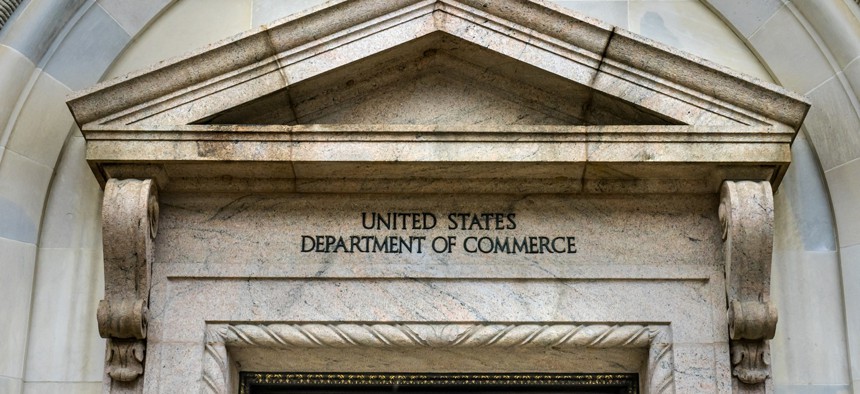Trade group urges Commerce secretary to support the work of subagencies

bpperry/Getty Images
The Business Software Alliance said international alliances, export control regimes and standards harmonization efforts can all support the Department of Commerce’s advancement of U.S. tech.
The Department of Commerce should take steps to enable the work of its sub-agencies to help support the agency’s broader technology and trade posture, the Business Software Alliance wrote to Secretary Howard Lutnick Monday.
In a letter shared with Nextgov/FCW and publicly released Tuesday, BSA CEO Victoria Espinel outlined five recommendations that Commerce can undertake to advance U.S. technology businesses and endeavours. They included strengthening the role of subagencies, including the National Institute of Standards and Technology and the U.S. Patent & Trademark Office.
“The Commerce Department’s leadership in this debate will be instrumental to bringing allies toward a consistent approach that gives American companies fair access to global markets while protecting and advancing US technology leadership,” Espinel wrote.
The letter endorsed increasing broad support for NIST missions, leveraging the International Trade Administration to promote U.S. digital exports, prioritizing the adoption of artificial intelligence within the USPTO, and strengthening commitments to export control through the Bureau of Industry and Security.
Regarding NIST, Espinel wrote that supporting the agency’s longstanding work in crafting governance frameworks for the safe use of AI, cybersecurity and data privacy will enable U.S. dominance in crafting regulations for emerging systems.
“Now is the time to urge NIST to focus its efforts on advancing the science and security of AI, as well as other R&D efforts that facilitate pre-standardization research and bolster US national and economic security,” the letter said. “Additionally, the US government should leverage existing NIST guidance and expertise to harmonize cybersecurity policies in the US and abroad.”
Leveraging AI as part of the USPTO’s internal operations is also intended to support U.S. technology firms by expediting the volume of technology patents processed and approved by the agency, as well as quickly documenting bad applications.
Supporting cross-border transfers through ITA and firming export controls via BIS are also intended to maintain U.S. technology business leadership and prevent both barriers to trade and intellectual property theft, respectively.
The letter also noted that building on and creating new international agreements, such as the U.S.-Japan Digital Agreement and the U.S.-Mexico-Canada Agreement — both of which were negotiated during the first Trump administration — will also keep American technology and policy at the forefront of global developments.
Espinel said that new international cooperation should feature critical emerging technologies like AI and quantum information systems to build technology safeguards that help protect global users as well as U.S. leadership in these sectors.
During his confirmation hearing, Lutnick highlighted these emerging technologies as a major priority for Commerce under his leadership, saying he intends to “unleash America for the benefit of America,” and adding that he broadly supports subagency operations to assist in that effort.
Commerce did not respond to a request for comment by the time of publication.


